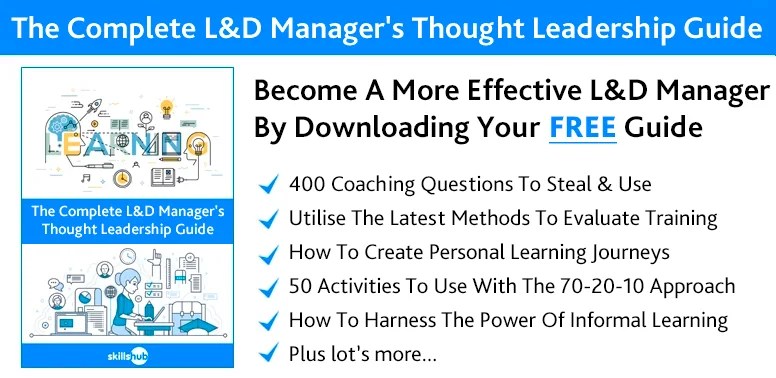Written by: Ashley Wickham
In 1960 McGregor stated ‘all we can do is set up certain conditions that will maximise the probability of employees developing an interest in what they are doing and remove the conditions that function as constraints’.
Are we working to that aim?
The Performance Process has been with us for some while and perhaps it’s time for a refresh.
Called an Appraisal Process, Performance Management Process, Performance Development Process- I could go on. It is generally an annual process, with some formal milestones throughout.
At best, it is directly linked to business success and motivates and empowers people to achieve their goals; at worst, it is an expensive labour intensive form filling exercise.
It should ideally be used as a vehicle to motivate, to set goals and to create development plans that include personal learning resources like face to face workshops, coaching, company curated bespoke elearning content, third party elearning content, internal mentors, virtual training and a whole host of other L&D approaches.
If you’re ready to level up your L&D strategy with the help of an eLearning company, get in touch with us today!
Here are my 7 steps to give the performance review meaning and result in success for both the employee and the business. You may recognise the acronym!
Specific: The performance process should have a specific goal.
It needs to generate an exciting anticipation of how it will benefit me as an employee.
It will cover specific topics, my performance, feedback, my career plans.
I need clarity and simplicity so it becomes an enabler not a hindrance.
Meaningful: I value personal interest and development.
I want to be mentored and receive coaching, but also to know that I bring value as a mentor or co collaborator too.
I want to know that what I am doing adds value, that I have a voice and I am listened to.
Achievable: I like to know when I have done a good job and I need to be able to ask for support and help.
I also need to receive development to help me reach my goals.
I want to be able to discuss how I can work better with my manager and achieve results.
Relevant: My performance plan needs to show what I am doing and that it will have a direct impact on the business.
I need to know where I fit in, and I need to know the effect I am having on the business regularly.
Timely: Feedback needs to be continuous not retrospective, ‘just in time’.
I am happy to have this informally but I want it regularly so I can act on it.
The intent should be to develop and provide direction and give recognition.
I also want to be able to give feedback in an open and honest safe environment.
Evaluate: I like to be able to make decisions and not be afraid to, knowing I will be rewarded for the risk taking and decision-making in a test and learn environment.
By taking time to regularly reflect I can learn from mistakes keep improving.
Readjust: The plan shouldn’t be a year-long ‘set in stone’ document.
In a fast paced VUCA world there is a need for agility, which requires iterative working.
Regular review and readjustment keeps be focused shows my progress.
Let’s get people excited about the chance to shape their goals to shape the business, have meaningful, inspirational discussions, and coach people on how to do this well!


 Written by: Ashley Wickham
Written by: Ashley Wickham 









